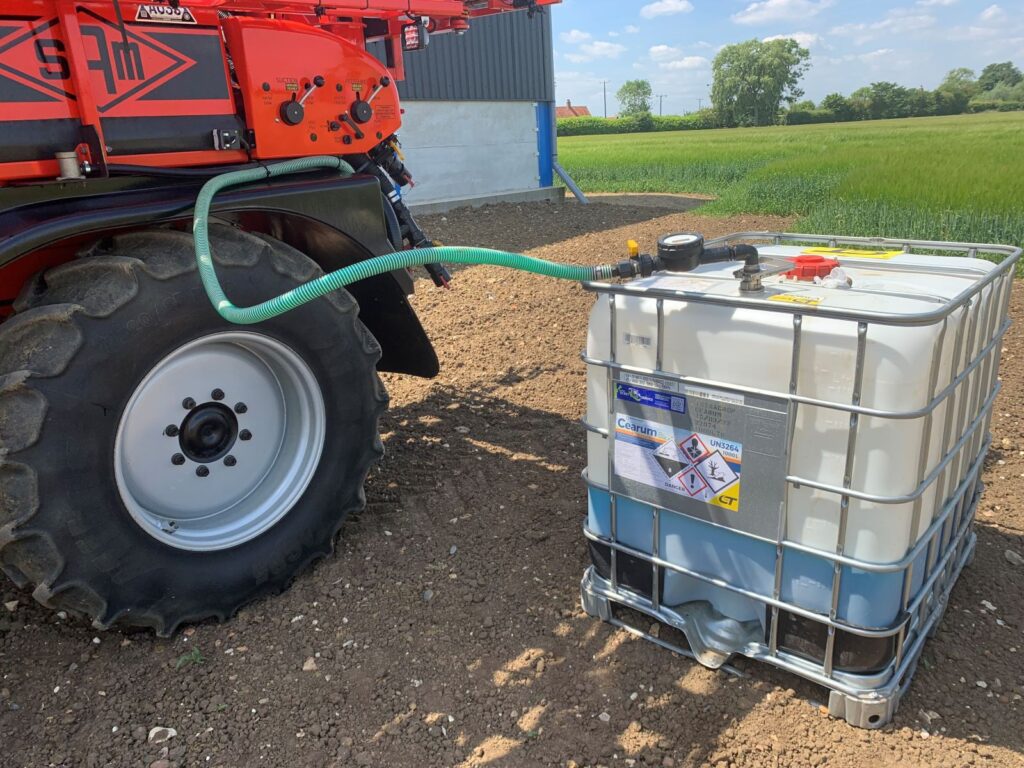Funding up to £30,000 available for Midlands farmers to improve water quality
20th April 2023
Farmers can now apply for this year’s round of Severn Trent’s Environmental Protection Scheme (STEPS) match funding, offering up to £30,000 for farms in priority catchment areas to invest in improving water quality.

Having awarded over 2,000 STEPS grants to date, Severn Trent’s aim over the course of 2023 is to continue to partner with more farmers and landowners across the water company’s 48 priority catchments.
To broaden the outreach of STEPS, this year match funding is available for Closed Transfer Systems (CTS), which enable fast, clean and safe chemical transfer to and from sprayers. CTS are a great alternative for pesticide management, especially for farms that can’t accommodate a full-size pesticide wash down area.
Funding to help improve biodiversity and protect natural habitats is also available under the remit of ‘Spring STEPS’. This scheme has a shorter application window ending on 31st October, while farmers can apply for the main STEPS funding until 31st December 2023.
Dr Alex Cooke, principal catchment management scientist at Severn Trent, explained that both elements of STEPS offer flexible funding options for a wide range of on-farm environmental projects.
“The main STEPS match funding is available to those in priority catchments to address issues such as nitrates, pesticides and cryptosporidium reaching watercourses and help to keep our rivers healthy,” she said.
Options for different catchment areas include:
Pesticide catchment areas:
- Closed Transfer Systems (CTS) for pesticides
- Pesticide washdown areas, including roofing
- Riverside grass margins
- Biobeds and biofilters
- Alternative weed management in grassland fields
- Precision pesticide application equipment
Nitrate catchment areas:
- Cover crops
- Grass margins
Cryptosporidium catchment areas:
- Livestock fencing along watercourses
- Hard bases for drinking troughs
- Roofed livestock handling and manure storage areas
- Constructed wetlands
While farmers can choose an array of funding options, Dr Cooke strongly recommends choosing a priority item specific to the catchment to ensure applications are competitive. This could include the new closed transfer system, pesticide washdown areas, cover crops or livestock fencing.
“‘Farmer innovation’ options are also available,” she continued. “In instances where the main STEPS options aren’t appropriate for your farming business, these options allow farms to suggest an alternative way to help protect water quality and the environment, that benefits the individual enterprise.”
Meanwhile, Spring STEPS works in a similar format to the wider grant programme with a focus on biodiversity projects. Available funding options include:
- Annual pollinator mix
- Planting herbal leys
- Wildflower margins and mini meadows
- Feeding farmland birds
- Flowering summer cover crops
- Spring sown bird seed crops
Dr Cooke encouraged farmers and landowners to visit the Severn Trent website or contact their local agricultural adviser to find out more.
